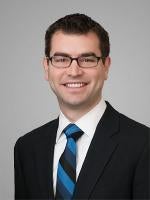




Washington, D.C. employers will not need to scrap all their non-compete agreements after all. On July 12, 2022, the D.C. Council (the “Council”) passed the Non-Compete Clarification Amendment Act of 2022 (B24-0256) (the “Amendment”), which among other things, tempers the District’s near-universal ban on non-compete provisions to permit restrictions for highly compensated employees. For further analysis on the original D.C. Ban on Non-Compete Act, please see our previous articles here and here.
The Council delayed the initial ban several times in response to feedback from employer groups. However, barring an unlikely veto or Congressional action during the mandatory review period, the amended ban will take effect as of October 1, 2022. We detail the key revisions to the ban below.
In addition to permitting non-compete agreements with medical specialists making more than $250,000 annually, the revised ban allows D.C. employers to enter non-compete agreements with almost any employee whose total compensation is or is reasonably expected to be more than $150,000 per year. The Amendment clarifies that “compensation” includes bonuses, commissions, overtime premiums, vested stock, and other payments provided on a regular or irregular basis; however, fringe benefits will not count toward the threshold unless they are paid in cash or cash equivalents. Beginning January 1, 2024, the threshold will increase in proportion to the annual average increase in the U.S. Department of Labor’s Consumer Price Index for All Urban Consumers in the Washington Metropolitan Statistical Area for the previous calendar year adjusted to the nearest whole dollar.
A last-minute industry-specific change carved out an exception that prohibits non-competes for any employees, other than sales representatives, who work for a television, radio, cable, satellite, or other broadcasting station or network – regardless of total compensation.
The Amendment provides certain requirements for non-compete agreements between an employer and highly compensated employee executed on or after October 1, 2022. To be valid and enforceable, any such agreement must:
Employers must also provide the non-compete to the highly compensated employee in writing at least 14 days before the start of employment or the execution of the agreement.
Moreover, like when proposing a non-compete with a medical specialist, employers must provide the following notice to highly compensated employees simultaneously with the proposed non-compete provision:
The District of Columbia Ban on Non-Compete Agreements Amendment Act of 2020 limits the use of non-compete agreements. It allows employers to request non-compete agreements from “highly compensated employees” under certain conditions. [Name of employer] has determined that you are a highly compensated employee. For more information about the Ban on Non-Compete Agreements Amendment Act of 2020, contact the District of Columbia Department of Employment Services (DOES).
The original ban applied to agreements with any employee who performs work or prospective employee whom the employer reasonably anticipates will perform work in Washington, D.C. The Amendment clarifies that the ban only covers employees and prospective employees if (i) they spend or are reasonably anticipated to spend more than 50% of their work time working in D.C. for the employer, or (ii) their employer is based in D.C. and they “regularly” spend a “substantial amount” of work time in D.C. and not more than 50% of their work time for that employer working in another jurisdiction.
The Amendment preserves the carve out for non-compete agreements entered into simultaneously with the sale of a business. This means that a buyer of a business may still insist that the seller refrain from competing with the buyer.
The Amendment also clarifies that employers may bar their employees from disclosing, using, selling, or accessing the employer’s confidential and proprietary information during or after employment, and excludes otherwise lawful “long term incentives” from the definition of “non-compete provision,” such as bonuses, equity compensation, and other performance driven incentives for individual or corporate achievements typically earned over more than one year
In a welcome change from the original total ban, the Amendment permits anti-moonlighting provisions if the employer reasonably believes the outside employment could (i) result in the disclosure or use of the employer’s proprietary information; (ii) cause a conflict of interest; (iii) constitute a “conflict of commitment” for an employee of a higher education institution; or (iv) impair the employer’s ability to comply with federal or District laws or another contract.
Nevertheless, employers with workplace policies that include one or more of these exceptions must provide the employee with a written copy of the provisions (i) by Oct. 31, 2022; (ii) or within 30 days of the employee’s acceptance of employment; and (iii) any time the policy changes.
Absent unexpected opposition from the Mayor or Congress, we expect the amended ban to take effect on October 1, 2022. Employers operating in Washington, D.C. should review their standard employment agreements and employee policies and remove all non-compete provisions that could affect employees making less than $150,000 annually and appropriately address any moonlighting restrictions to make them consistent with the amended law Moreover, as we previously recommended, D.C. employers who are considering entering non-compete agreements with new hires or employees who do not meet the highly compensated employee threshold, should promptly do so, so that the agreements remain enforceable after the Act takes effect.
©2024 Epstein Becker & Green, P.C. All rights reserved.![]()
![]()

We collaborate with the world's leading lawyers to deliver news tailored for you. Sign Up to receive our free e-Newsbulletins
You are responsible for reading, understanding, and agreeing to the National Law Review's (NLR’s) and the National Law Forum LLC's Terms of Use and Privacy Policy before using the National Law Review website. The National Law Review is a free-to-use, no-log-in database of legal and business articles. The content and links on www.NatLawReview.com are intended for general information purposes only. Any legal analysis, legislative updates, or other content and links should not be construed as legal or professional advice or a substitute for such advice. No attorney-client or confidential relationship is formed by the transmission of information between you and the National Law Review website or any of the law firms, attorneys, or other professionals or organizations who include content on the National Law Review website. If you require legal or professional advice, kindly contact an attorney or other suitable professional advisor.
Some states have laws and ethical rules regarding solicitation and advertisement practices by attorneys and/or other professionals. The National Law Review is not a law firm nor is www.NatLawReview.com intended to be a referral service for attorneys and/or other professionals. The NLR does not wish, nor does it intend, to solicit the business of anyone or to refer anyone to an attorney or other professional. NLR does not answer legal questions nor will we refer you to an attorney or other professional if you request such information from us.
Under certain state laws, the following statements may be required on this website and we have included them in order to be in full compliance with these rules. The choice of a lawyer or other professional is an important decision and should not be based solely upon advertisements. Attorney Advertising Notice: Prior results do not guarantee a similar outcome. Statement in compliance with Texas Rules of Professional Conduct. Unless otherwise noted, attorneys are not certified by the Texas Board of Legal Specialization, nor can NLR attest to the accuracy of any notation of Legal Specialization or other Professional Credentials.
The National Law Review - National Law Forum LLC 2070 Green Bay Rd., Suite 178, Highland Park, IL 60035 Telephone (708) 357-3317 or toll-free (877) 357-3317. If you would like to contact us via email please click here.
Copyright ©2024 National Law Forum, LLC